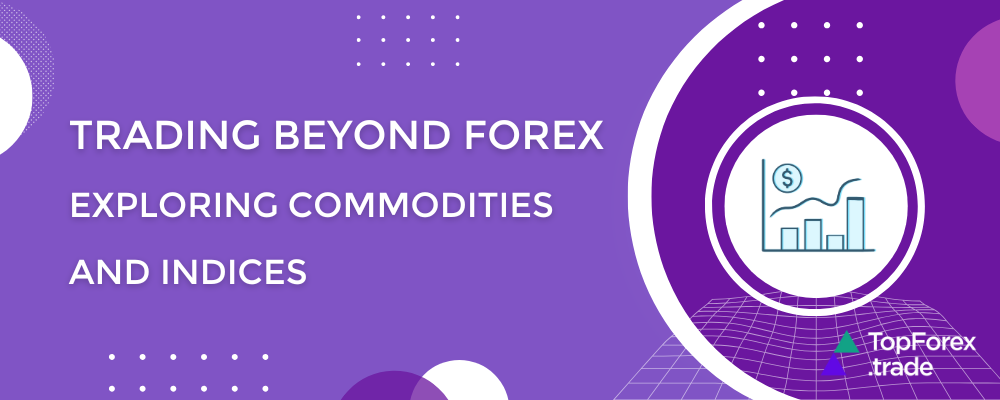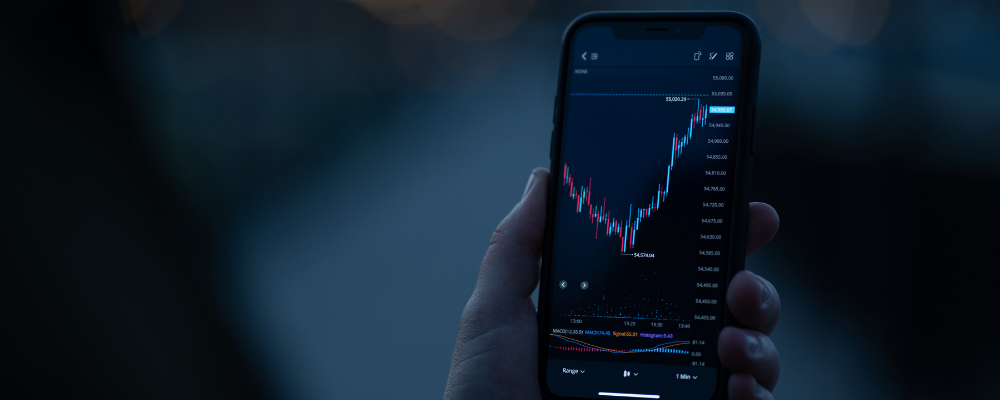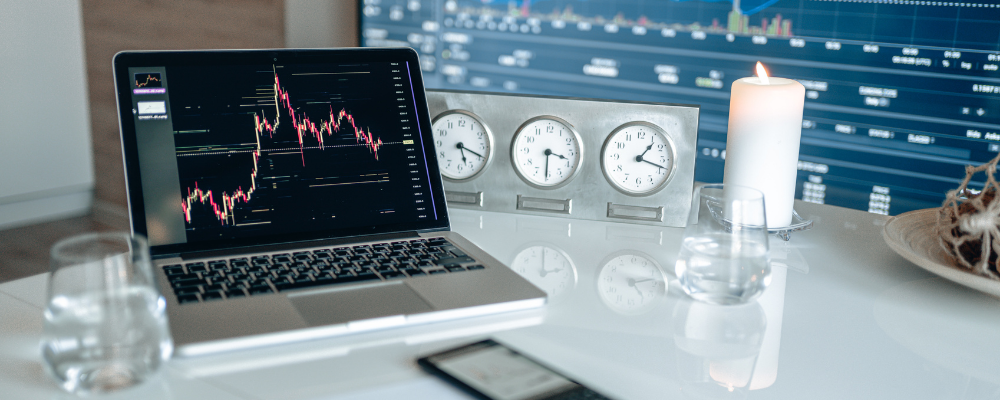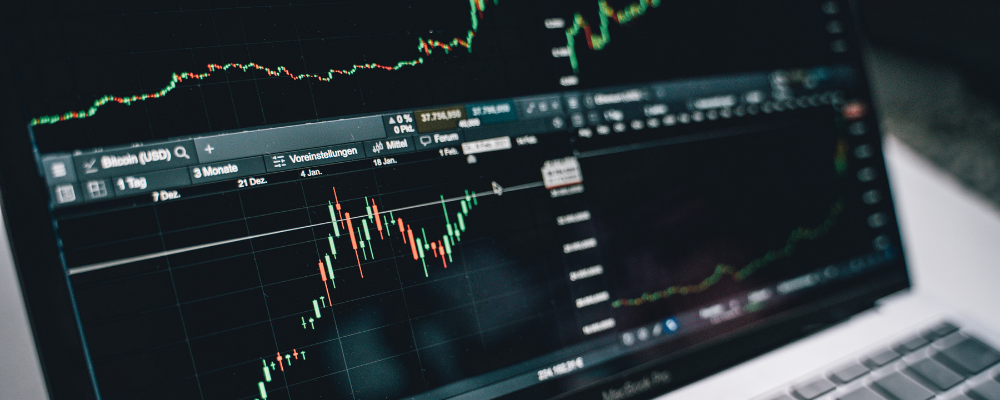Why diversify beyond Forex? Exploring commodities and indices

While Forex offers plenty of opportunities, diversifying into commodities and indices can open up new possibilities for growth and risk management. In this article, we’ll explore why adding these markets to your portfolio could strengthen your trading strategy and help you navigate different market conditions.
Diversify your FX portfolio with commodities and indices

While Forex trading remains a popular choice due to its liquidity and accessibility, diversifying your trading portfolio by including commodities and indices can offer new opportunities and reduce risks. Commodities like oil, gold, and agricultural products, and indices such as the S&P 500 or Dow Jones, provide traders with exposure to different market forces compared to currency markets. These assets often respond to factors that may not affect Forex prices directly, making them valuable tools for a well-rounded portfolio.
Why should you diversify your FX portfolio?
- Risk reduction: By adding commodities and indices to your portfolio, you spread your risk across different markets. For example, if the Forex market faces a downturn, a rise in gold or oil prices could offset some of those losses. Diversification helps minimize the impact of volatility in one specific market.
- Opportunities in different market conditions: Forex markets can be affected by macroeconomic events such as central bank decisions or geopolitical developments. Commodities, on the other hand, may be more influenced by supply-demand imbalances or seasonal trends. Indices provide exposure to entire markets, making them a good hedge against sector-specific downturns.
- Enhanced returns: Commodities and indices often perform well when Forex markets are flat or highly volatile. Traders who are able to anticipate changes in commodity prices or the performance of stock indices may benefit from increased profitability. Commodities like oil or gold can experience large price swings, offering trading opportunities that are different from those in the Forex market.
How to diversify your FX portfolio?

- Start small with commodities and indices: If you’re primarily a Forex trader, begin by allocating a small portion of your portfolio to commodities or indices. This lets you gain exposure to these markets without overexposing yourself to risk.
- Use exchange-traded funds (ETFs): ETFs that track commodities or stock indices are an easy way to get started. For example, an ETF that tracks the S&P 500 provides exposure to the broader U.S. stock market, while commodity ETFs allow you to invest in gold, silver, or oil without the need to physically hold the asset.
- Leverage futures contracts: If you’re comfortable with more advanced trading strategies, futures contracts allow you to trade commodities like crude oil, natural gas, or agricultural products. Futures offer the potential for significant gains but come with higher risk.
- Consider CFDs (Contracts for Difference): CFDs allow traders to speculate on the price movements of commodities and indices without owning the underlying assets. This is a flexible option that allows traders to profit from both rising and falling prices.
Trading instruments and examples

- Gold as a safe haven: When there’s economic uncertainty or inflation fears, gold often acts as a safe haven asset. For instance, during times of global instability or market crashes, gold tends to increase in value. A Forex trader might use gold to hedge against potential volatility in currency markets.
- Oil for energy sector exposure: Crude oil prices can be influenced by geopolitical events, supply chain issues, and OPEC decisions. An oil trader can profit from these shifts, and a Forex trader might use oil as a hedge against currency fluctuations caused by these global factors.
- Stock indices for market trends: The S&P 500 index offers exposure to a broad range of U.S. stocks, giving traders the ability to trade the performance of the entire market. If you’re watching global economic trends and expect the market to rise, buying S&P 500 CFDs or ETFs could be an effective diversification strategy.
Case study: diversifying FX portfolio with commodities and indices

John, an experienced Forex trader, primarily traded major currency pairs like EUR/USD and GBP/USD. He had developed a solid understanding of the Forex market, focusing on economic indicators, central bank policies, and geopolitical events. However, John began noticing increased market volatility and wanted to diversify his strategy to reduce risk and take advantage of different market conditions.
Diversification strategy
John decided to allocate a portion of his trading capital to commodities and indices, starting with gold (a commodity) and the S&P 500 index (a stock index). His decision was driven by the following factors:
- Gold: During periods of economic uncertainty, gold is often seen as a safe haven. John anticipated that the geopolitical tensions and global inflationary pressures could lead to a rise in gold prices.
- S&P 500: As the U.S. stock market was experiencing growth, John saw potential for gains in the S&P 500 index. The index represented a broad range of U.S. stocks, and he believed that the market would continue to rise, driven by positive corporate earnings and consumer spending.
Implementation
Gold trading:
- John opened a position in gold via a CFD, using a small portion of his capital (10%) to reduce exposure to risk.
- Over the next few weeks, geopolitical tensions rose in the Middle East, leading to a spike in gold prices as investors sought safe havens.
- John capitalized on the price increase, selling his gold position for a 15% profit.
S&P 500 index trading:
- John used an ETF to trade the S&P 500 index, allocating another 10% of his portfolio to this asset.
- As expected, the U.S. stock market continued its upward trajectory, driven by strong economic data and positive market sentiment.
- John saw a 12% gain in his S&P 500 ETF position, benefiting from the overall growth of the market.
Results of diversification
By diversifying into commodities and indices, John experienced a more balanced and profitable portfolio during a volatile period. While his Forex trades were affected by market fluctuations, the gains from gold and the S&P 500 index offset some of his losses. His portfolio overall experienced a 20% increase in value during this time.
Key takeaways
- Risk reduction: Diversifying into commodities like gold and indices like the S&P 500 allowed John to reduce risk exposure. When Forex markets faced short-term volatility, his investments in gold and the S&P 500 performed well, balancing his overall portfolio.
- Market opportunities: Gold provided a hedge against geopolitical risk, while the S&P 500 allowed John to capitalize on the strong performance of U.S. equities. These markets responded differently to the same economic factors, providing John with new opportunities to profit.
- Increased flexibility: By trading across different asset classes, John had more flexibility in responding to various market conditions. His ability to switch between Forex, commodities, and indices gave him multiple avenues for profit, even when one market faced downturns.
The best FX brokers
To trade beyond Forex, you need a broker offering diverse markets and competitive tools. Here’s a list of the best brokers to help you seamlessly diversify with commodities and indices.
XTB FX trading
XTB is a global leader, operating in over 190 countries with a strong focus on security and transparency. Regulated by top-tier authorities like the FCA, CySEC, and KNF, it’s a broker you can trust. Its advanced platforms, xStation and MetaTrader 4, make trading a wide range of currency pairs seamless. Whether you’re a beginner or a seasoned trader, XTB offers flexible account options, including Standard and swap-free accounts, to suit diverse trading needs.
BlackBull FX trading
BlackBull Markets is a trusted forex and CFD broker known for delivering a seamless trading experience on advanced MT4 and MT5 platforms. Packed with robust analytical tools, these platforms help traders craft and execute effective strategies. With a focus on user experience, BlackBull Markets stands out for its excellent customer support and educational resources, catering to both beginners and seasoned traders. Committed to security and transparency, it offers a dependable environment for traders looking to refine their skills and adapt to the evolving forex market.
Exness FX trading
Exness is a top choice for traders, offering a diverse range of assets, including currency pairs, commodities, indices, and cryptocurrencies. Regulated by the FCA and CySEC, it provides a secure and trustworthy trading environment. With competitive spreads on both Standard and Professional accounts, Exness accommodates different trading styles. The broker supports traders with responsive customer service via email, live chat, and phone, while its MetaTrader 4 (MT4) and MetaTrader 5 (MT5) platforms deliver a seamless, feature-packed trading experience. Suitable for traders of all levels, Exness stands out as a reliable and versatile option.
Plus500 FX trading
Plus500 is a trusted broker offering access to a wide range of trading instruments, including forex, commodities, indices, stocks, and cryptocurrencies. Regulated by top-tier authorities like the FCA and CySEC, it ensures a secure and transparent trading environment. Known for its user-friendly proprietary platform, Plus500 provides intuitive tools and features ideal for both beginners and experienced traders. With tight spreads and commission-free trading, it caters to cost-conscious traders seeking efficiency. Reliable customer support and a seamless trading experience make Plus500 a solid choice for those looking to trade diverse markets with confidence.
82% of retail investor accounts lose money when trading CFDs with this provider. You should consider whether you can afford to take the high risk of losing your money.
HF Markets (HotForex) FX trading
HF Markets (HotForex) is a globally recognized broker offering a wide range of trading instruments, including forex, commodities, indices, and cryptocurrencies. Regulated by respected authorities such as the FCA and CySEC, it provides a secure and transparent trading environment. Known for its robust MetaTrader 4 (MT4) and MetaTrader 5 (MT5) platforms, HF Markets supports various trading styles with competitive spreads, flexible leverage, and diverse account options, including swap-free accounts. With excellent customer support, comprehensive educational resources, and a focus on reliability, HF Markets is an ideal choice for traders at all levels.
Related articles:
Trading beyond Forex - FAQ